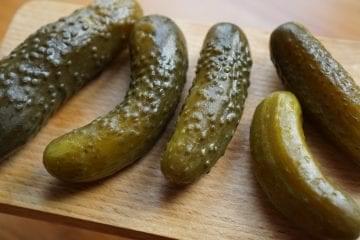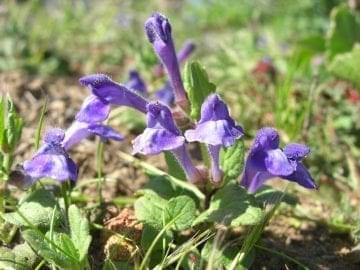Goji Berry goes by many names. Wolfberry, Lycii Berry, Gou qi zi or Di gu pi. It’s even got more than one botanical name: Lycium barbarum. L. chinese, L. sinese or L. dasystenum are all species that share the same medicinal qualities and are often grouped together as one. For simplicity’s sake, I’m calling it simply Goji Berry.
Goji Berry and Traditional Chinese Medicine
Goji Berry is one of those little dried fruits that pops up as popular every few years among the herbal and health crowds for a while, then it fades into the background until it’s needed once again. There’s loads of good reasons for that, not the least of which is that Goji Berry is a Yin-Building herb.
Goji Berry is used primarily in Traditional Chinese Medicine as a Yin-building and Tonifying herb for the Liver, Lung, and Kidney channels. While Chinese Herbalists use the root of this shrub to clear heat, the berries are far more neutral, although they can be hard to digest for those who have strong Spleen or Stomach deficiency. Traditionally, Gojo was contraindicated for deficiency marked by a cold middle or stomach.
With the exception of that type of extreme, Goji is a generally safe and useful herb to keep on-hand. It’s often suggested for women of child-bearing years who want to or are trying to get pregnant. Goji berry tones or strengthens the Kidney channel, which is often drained or weakened by frequent sex and by pregnancy in general. Goji berry can help support healthy bloodflow through the kidneys and reproductive organs without overheating or overstimulating them.
Menopausal and perimenopausal women who suffer from signs of Yin Deficiency, including heat rising from the legs or lower body at night, persistent sorness in the lower back, and general exhaustion may find the blood tonifying and yin building nature of Goji berry helps ease them through the transition and in rebuilding the body afterward.
Traditional Western Herbalism and Goji Berry
From a Traditional Western Herbalism perspective, Goji Berry would be considered sweet and bitter and useful for conditions marked by tension paired with exhaustion. Although Goji berry is considered a food, and sometimes called a superfood by modern herbalists, its nevertheless a good medicine for those who are recovering from illness or suffering from exhaustion for other reasons. Goji Berry’s neutral nature promotes general balance. The sweet aspect of Goji berries suggest an affinity for the Earth Element while the Bitter undertones suggests an ability to manage Liver-fire type of symptoms, like moodiness and overheating rooted in exhaustion.
Ayurveda and Goji Berry
From an Ayurvedic perspective, Goji Berry would be considered a Pitta-reducing, Kapha-increeasing, Vata-neutral herb. Goji berry would be a good choice for folks with symptoms that look like excess Pitta but are a result of diminished Kapha, including weight-gain that’s a result of stress. One of the interesting aspects of Goji Berry is that it is both gentle and focused in its action in the body. Goji Berry has the ability to brush aside masking symptoms while getting to work rebuilding the area that’s been weakened.
Using Goji Berry
With all that in mind, how might you use Goji Berry?
Goji Berry makes a lovely addition to daily diet for folks who need to replenish their bodies. This is useful through stressful times in life as well as after illness. Smoothies, soups, kongee and similar warm cereals are the obvious choices for recovery. For daily support through stressful periods in life, including the fertile and childbearing years, consider adding a handful of dried Goji Berries to your trailmix or granola or including them in your daily snack.
I like Goji Berries as a sweetener for herbal teas. The slightly bitter-earthy flavors of Goji Berry come through well, and they can be a lovely way to mask the more bitter or astringent nature of some of the other herbs I might be using. They’re a lovely balance to the more sour and intense flavor of immune-building herbs like Elderberry. I love to pair them with blueberry and chamomile for a sweet and cooling tea that works well warm or iced.
Goji Berry is safe for folks in all walks of life, too. Kids enjoy the sweetness of Goji just like we adults do. They’re generally a good choice for the growing years, when children are busy building strong and healthy bodies. They’re also good for the senior years, helping us to maintain those same healthy bodies as long as we can.






